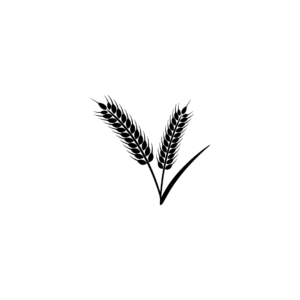Description
A Bachelor of Science (B.Sc) in Horticulture is an undergraduate degree that focuses on the science and art of cultivating, producing, and managing horticultural crops, including fruits, vegetables, flowers, and ornamental plants. This program equips students with the necessary knowledge and skills to work in various sectors related to horticulture, agriculture, landscaping, and garden management.
Curriculum Overview
The curriculum for a B.Sc in Horticulture typically includes a combination of theoretical coursework, practical training, and field experiences. Here are some common subjects and areas of study included in the program:
Introduction to Horticulture:
Overview of horticulture, including its importance in food production, landscaping, and environmental sustainability.
Plant Biology:
Study of plant anatomy, physiology, growth processes, and developmental biology relevant to horticultural crops.
Soil Science:
Examination of soil properties, fertility management, and soil health in relation to horticultural production.
Crop Production:
Principles of growing various horticultural crops including fruits, vegetables, herbs, and ornamentals.
Horticultural Practices:
Methods and techniques in propagating, planting, maintaining, and harvesting horticultural plants.
Plant Pathology:
Study of plant diseases, their causes, diagnosis, and management strategies to protect horticultural crops.
Entomology:
Exploration of insects and pests in horticulture, including their identification and management.
Pest and Disease Management:
Integrated pest management (IPM) strategies for controlling pests and diseases in horticultural systems.
Landscape Management:
Principles of landscape design, installation, and maintenance of garden and landscape areas.
Turf Management:
Study of turfgrass establishment and maintenance for recreational and aesthetic purposes.
Post-Harvest Technology:
Examination of processes involved in the handling, storage, and marketing of horticultural products to reduce spoilage and maintain quality.
Organic Horticulture:
Practices and principles of organic farming, including organic certification and market trends.
Sustainable Horticulture:
Focus on environmentally responsible practices and strategies for sustainable plant production.
Research and Experimental Design:
Training in research methodologies, experimental design, and data analysis as applied to horticultural studies.
Capstone Project/Internship:
Hands-on experience through a research project or practical work placement in the horticultural industry.
Career Opportunities
Graduates of a B.Sc in Horticulture can pursue various career paths across several sectors, including agriculture, landscaping, research, and education. Some potential job roles include:
Horticulturist: Working with plants to cultivate and manage crops, focusing on improving production practices.
Landscape Designer: Creating and implementing designs for landscapes, gardens, and outdoor spaces.
Greenhouse Manager: Overseeing greenhouse operations, including the production of ornamental plants and vegetables.
Crop Consultant: Advising farmers or businesses on best practices for horticultural crop management and pest control.
Research Scientist: Conducting research in horticulture focused on plant breeding, diseases, or sustainable practices in institutions or private industries.
Floriculturist: Specializing in the cultivation and marketing of flowers and ornamental plants.
Vegetable/Agronomic Manager: Managing the production of vegetables, including planning, planting, and harvesting operations.
Soil and Plant Health Consultant: Advising on soil management, plant nutrition, and health improvement strategies.
Turf Manager: Managing turf areas such as lawns, golf courses, or sports fields, focusing on maintenance and management.
Agricultural Educator: Teaching and promoting horticultural practices at schools, community colleges, or agricultural extension programs.
Further Education
After completing a B.Sc in Horticulture, graduates may choose to pursue higher education by enrolling in a Master?s degree program in Horticulture, Plant Science, Agricultural Science, or related fields. Advanced studies can lead to more specialized roles in research, teaching, or management positions in the horticultural industry.
If you have any questions about the Bachelor of Science in Horticulture program, potential career paths, or any related topics, feel free to ask!








